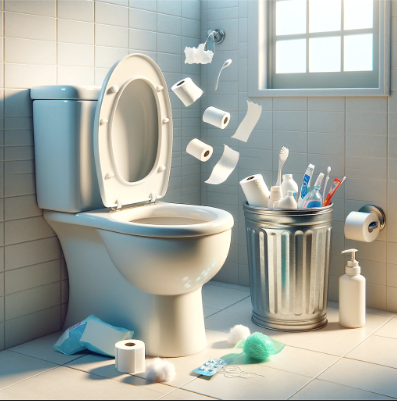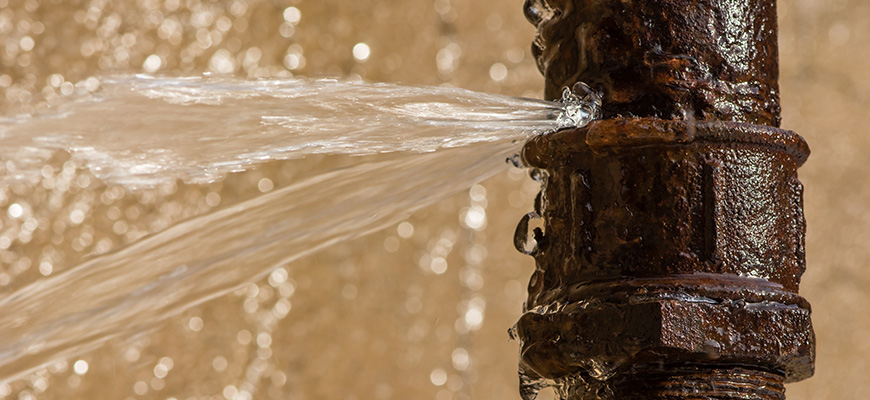As a homeowner, you might not give much thought to what you flush down your toilet. However, certain commonly flushed items can cause significant problems for your plumbing and the environment. While it may seem convenient to toss them into the toilet and flush them away, doing so can lead to clogs, sewer backups, and costly repairs. Let’s discuss some items that should never be flushed down your toilet, even if they’re labeled as “flushable.”
1. “Flushable” Wipes
Despite their name, “flushable” wipes are a leading cause of clogs in sewage systems. Unlike toilet paper, which dissolves quickly, these wipes do not break down easily after flushing. They can snag on any slight imperfection in your pipes, gradually leading to blockages.
2. Paper Towels and Tissues
Although they resemble toilet paper, paper towels and tissues are designed to be more durable and absorbent. This means they don’t disintegrate as easily in water. Flushing them can quickly lead to plumbing blockages and backups.
3. Dental Floss
It might seem harmless due to its small size, but dental floss is not biodegradable. When flushed, it can combine with other debris to form large clumps that obstruct pipes. Additionally, it can wrap around small clogs and make them larger, compounding the problem.
4. Cotton Balls and Swabs
Cotton balls and swabs don’t break down in water. When flushed, they gather in bends of the pipe, gradually building up and leading to clogs. This is especially true for cotton swabs, whose sticks can get lodged in pipes.
5. Medication
Flushing expired or unused medication might seem like a safe disposal method, but it’s harmful to the environment. Medications can leach into groundwater and affect local waterways, potentially harming wildlife and contaminating drinking water sources.
6. Cat Litter
Even if labeled as “flushable,” cat litter should never go down your toilet. It’s designed to clump and absorb moisture, which means it can easily clog your household plumbing. Moreover, cat feces can contain harmful parasites like Toxoplasma gondii, which can survive the water treatment process and pose risks to marine life.
7. Cooking Grease and Oil
When liquid, cooking grease and oil might seem flushable, but as they cool, they solidify and stick to the walls of your plumbing. Over time, they build up and restrict water flow, leading to serious blockages.
8. Condoms
Condoms are made from latex, which does not degrade in water. When flushed, they can inflate and block pipes, leading to embarrassing and costly plumbing issues.
9. Food
Bits of food might seem harmless, but they can contribute to clog formation, especially if combined with other non-flushable items like grease or paper products.
Conclusion
Protect your plumbing and the environment by keeping these items out of your toilet. Remember, the toilet is not a garbage can. The only things that should be flushed are the “Three P’s”: pee, poo, and (toilet) paper. For everything else, consider alternative disposal methods like trash bins, recycling, or appropriate community disposal programs. This not only helps maintain your home’s plumbing but also supports environmental conservation efforts.


